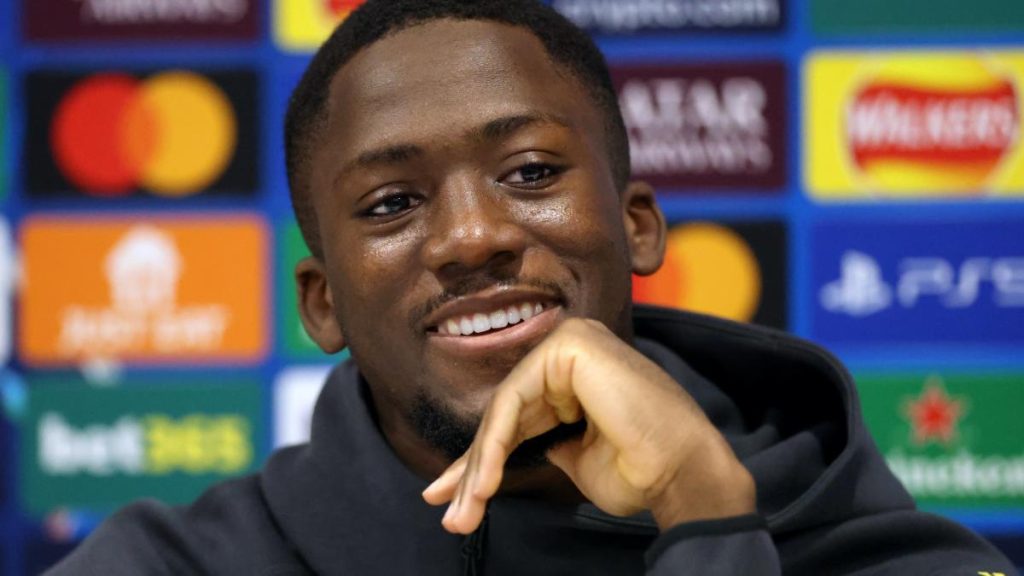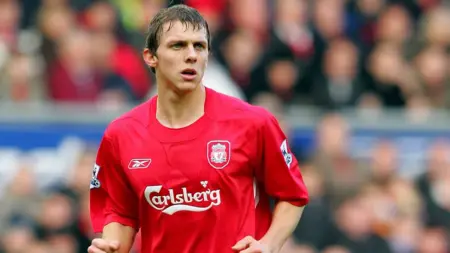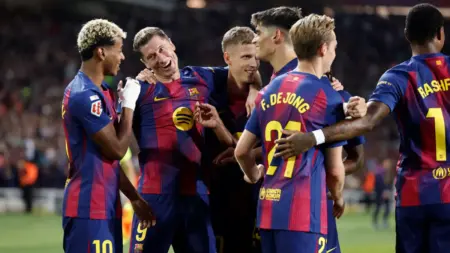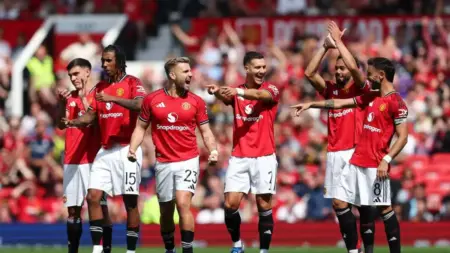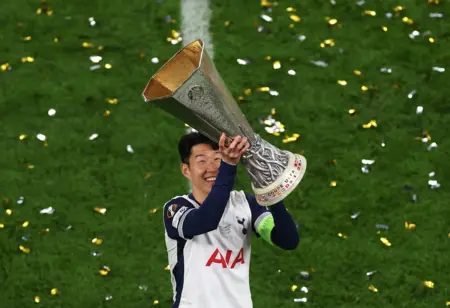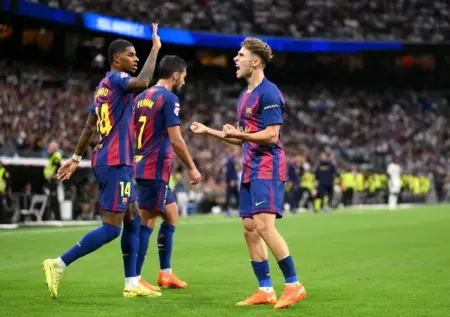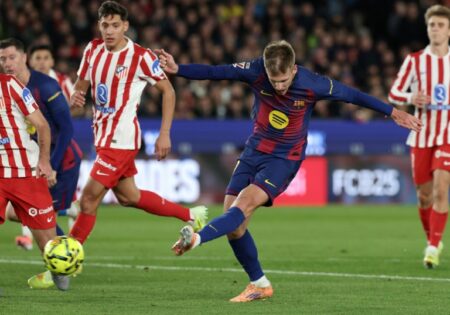Controversial Challenge: Konate’s Dangerous Tackle on Barcola
Paris Saint-Germain’s (PSG) first-leg defeat to Liverpool at the Parc des Princes on Wednesday night was a hard one to swallow, especially given the numerous chances they created. However, the most contentious moment of the match occurred not during the decisive goal but midway through the first half, when Liverpool defender Ibrahima Konate made a hazardous challenge on PSG’s Bradley Barcola. The incident was reviewed by VAR to determine if it warranted a red card for denying a goal-scoring opportunity, but ultimately, the referee decided against it, allowing play to continue. This decision has sparked significant debate among football analysts and enthusiasts alike.
The Criteria for a Red Card: Digging Deeper into the Rules
Christina Unkel, a CBS Sports Rules Analyst, was quick to express her disagreement with the referee and VAR’s decision during the postgame show. According to Unkel, the challenge by Konate should have been reviewed as a red card for denying an obvious goal-scoring opportunity. Football’s laws, particularly those concerning red cards, are nuanced and require a thorough examination of specific criteria. The primary questions to consider are the nature of the contact and whether the attacker had a genuine opportunity to control or score with the ball.
The Nature of the Contact: More Than Just a Shoulder-to-Shoulder
In the incident in question, the contact between Konate and Barcola was far from a simple shoulder-to-shoulder challenge. Instead, Konate went through Barcola, a move that is significantly more dangerous and less fair. Such a tackle can easily throw an attacker off balance, disrupt their stride, and lead to a loss of control over the ball. This level of force and danger is typically what the rules are designed to penalize, as it not only endangers the player but also disrupts the flow of the game in a critical moment.
Barcola’s Opportunity to Score: A Clear and Present Danger
The second crucial aspect to consider is whether Barcola had a clear opportunity to score. In this scenario, Barcola was a high-level professional footballer who was well-positioned and had a clear path to the ball. The fact that he was in a prime position to control or potentially score further strengthens the case for a red card. The laws of the game are clear that if a defender prevents a player from scoring through a serious foul, it should be penalized appropriately. Unkel’s analysis highlights that Barcola met all the necessary criteria for an obvious goal-scoring opportunity, making the case for a red card even more compelling.
The Role of VAR: A Missed Opportunity for Fair Play
VAR’s role in modern football is to ensure that major decisions, such as red cards, are made correctly. In this instance, the review process appears to have fallen short. Unkel emphasizes that the challenge should have been called as a penalty on the field, and if it wasn’t, VAR should have intervened to correct the mistake. The integrity of the game relies heavily on these technological aids to ensure fairness and consistency. By not stepping in, the VAR system failed to uphold the standards it is meant to enforce, leaving PSG at a disadvantage and potentially altering the course of the match.
The Impact on the Match: PSG’s Task at Anfield
This loss is particularly significant for PSG as it marks their first defeat since last November when they fell to Bayern Munich. The club, under the guidance of coach Luis Enrique, now faces the daunting task of turning the tie around at Anfield in the second leg. The decision not to send Konate off could have a lasting impact on the series, as Liverpool will have a full-strength team to defend and counterattack. PSG must regroup, focus on their strengths, and ensure that they capitalize on every opportunity in Liverpool to level the tie and advance to the next round. The controversy surrounding the incident only adds to the pressure and the stakes of the upcoming match.

